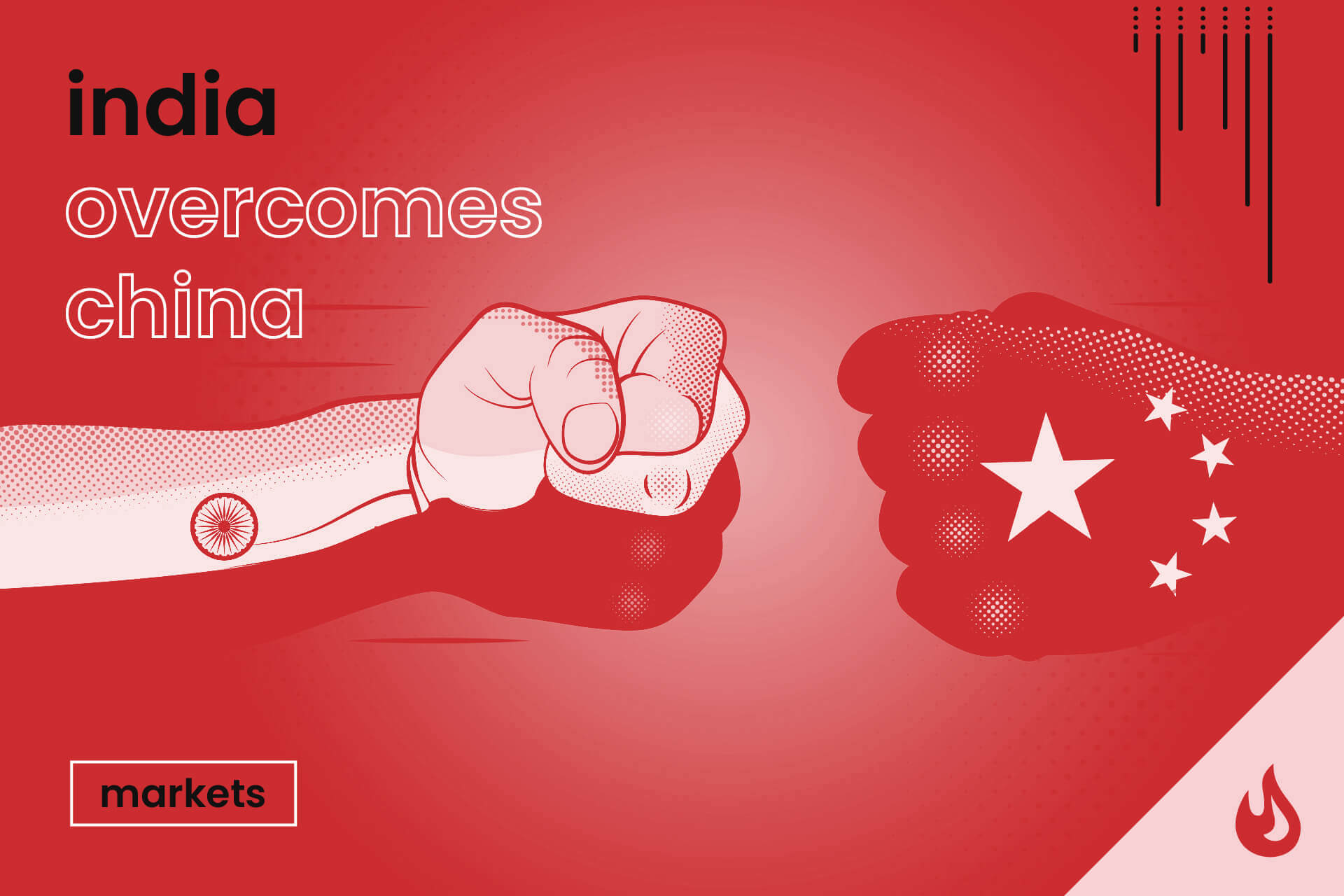
India has overtaken China to become the largest trader of peer-to-peer Bitcoin trading. India witnessed tremendous growth in P2P Bitcoin trades in 2020 to claim the number one spot. This growth in P2P Bitcoin trades comes after the country reviewed its policies against cryptocurrencies in March this year.
P2P Bitcoin Trading Surges in India
India’s first mainstream exposure to cryptocurrencies came in 2017. The public attraction to Bitcoin and other cryptocurrencies brought the government into the scene. In 2018, the Reserve Bank of India used the RBI Act 1934 and the Payment Settlement Systems Act 2007 to make dealing in cryptocurrencies or providing similar services illegal across the country.
This led to many abandoning P2P trades in the country. The few who traded crypto had to be covert about it. However, in March 2020, the Supreme Court of India reviewed and subsequently overturned its previous rule. Since then, the government no longer considers the blanket ban on cryptocurrencies as not viable.
Sponsored
P2P Bitcoin trading in India is now up by 87 percent following the overturned rule against crypto trading in the country. India is now the largest trader of P2P Bitcoin, representing 33 percent of trade volumes in the Asia Pacific.
Possible Reasons for India’s Growth in P2P Bitcoin Trades
The Lifted Banking Restrictions
Since the ban on cryptocurrencies was overturned in March, the volume of P2P Bitcoin trading has shot up 87 percent, effectively positioning India as a key region of Bitcoin’s global growth.
India now sits above China as the largest traders of P2P Bitcoin. When put together, both countries now account for 66 percent of all Bitcoin peer-to-peer (P2P) trading volumes across the Asia Pacific.
Remittances
According to the World Bank, India is the top recipient of remittances. In 2019, the country received up to $83 billion worth of remittances, which is equivalent to 2.9 percent of the total Indian GDP. Using Bitcoins or other cryptos, people can now send remittances faster and cheaper.
Distrust in the financial system
According to a blog post from Rain, the exchange is now the first Middle Eastern cryptocurrency company to earn a regulatory license. Rain obtained the Crypto-Asset Module (CRA) license from CBB after completing the bank’s two-year regulatory sandbox program.
The Prime minister of India, Narendra Modi announced in 2016 that high-value banknotes would be withdrawn from the financial system overnight to prevent illicit activity. The result of the announcement was long queues at ATM stand as Indians sought to exchange their high-value banknotes.
Following the decision, the country has been hit by inflation (currently at 7.6 percent) and a devaluation of its currency against the US Dollar. With less trust in the financial system, more people turned to alternative stores of value and payment; including Bitcoin.
India is currently viewed as the world’s outsourcing center for coding, which makes it a potential crypto and blockchain hotspot. For that to be the case, the government of India could take the first step and heralding crypto as the devil. Introducing cryptocurrencies as an alternative for its existing payment and remittance system will be of benefit to the government and also set up India as a hub for cryptocurrency development.
